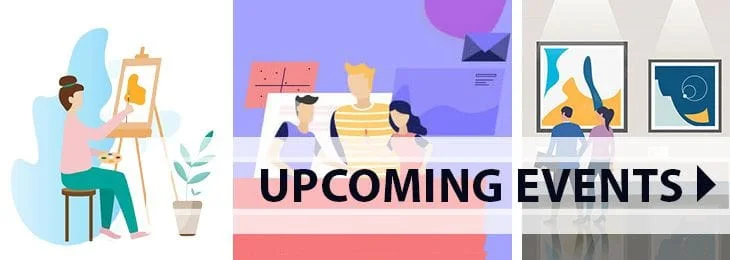New Groups are now forming. Contact [email protected] for more info.
Currently, we provide all of our groups remotely via a platform suitable for telehealth, such as Zoom. To learn more about our current group therapy offerings Click.
What is Group Counseling
Group counseling is a form of counseling where a small group of people meet regularly to discuss, interact, and explore problems with each other and the group leader. Group counseling seeks to give individual a safe and comfortable place where they can work out their problems and emotional concerns. Members gain insight into their own thoughts and behavior and offer suggestions and support to others. These interactions give members an opportunity to increase understanding of self and others, try out new ways of being with others, and learn more effective ways to interact. The content of the group sessions is absolutely confidential; members must commit to confidentiality: that is, they may talk about their own experience with whom they choose but may not identify other members or what they say outside of group.
What are the Goals of Group Counseling?
People who participate in counseling groups benefit in many ways. We believe that groups are uniquely suited to help you.
- Give and receive support
- Gain understanding of problems and explore possible solutions
- Practice interpersonal skills in a safe group setting
- Learn more about how you come across to others
- Increase observation and feedback skills
- Enhance problem-solving skills
- Improve emotional expressiveness
- Decrease social isolation
- Develop good communication skills
Ways that group counseling may be more enriching for some than individual counseling include:
You can benefit from the group even during sessions when you say little but listen carefully to others. You will find that you have some important things in common with other group members, and as others work on their concerns, you will learn much about yourself. In the group environment, others serve as “mirrors” who reflect aspects of yourself which you can recognize, and then choose to change or accept as they are.
Benefits:
- A safe place for people to share their feelings and explore the nature of their mental health condition
- A place to receive support from and give support to others who are experiencing similar difficulties
- The group provides an opportunity for personal experimentation. It is a safe place to risk learning more about yourself and new ways of interacting.
- Group members will bring up issues that strike a chord in you, issues of which you may not have been aware.
- Exposure to new behaviors, thoughts, and beliefs that may shift people’s perspectives
- A place where people feel that they are not alone
- Positive support systems
- A natural process of enhanced acceptance of self and others occurs as one learns to relate on deeper, more personal levels with others in the group.
- A more affordable alternative to one-on-one therapy sessions
Psychotherapy Groups: centers on identifying and changing inaccurate or distorted thinking, emotional responses, and behaviors. Cognitive Behavior group therapy attempts to restructure the beliefs a person has that lead to negative or harmful behaviors.
Counseling Groups: focus on your interpersonal relationships and social interactions, including how much support you have from others and the impact these relationships are having on your mental health.
These groups focus on interpersonal processes and problem-solving strategies to help people resolve the usual, yet often difficult, problems of living.
What are some reasons why a person may join an interpersonal therapy group? People who join an interpersonal therapy group usually want to be able to relate better with others and to feel better about themselves. Reasons a person may join an interpersonal group include:
- Often feeling angry, frustrated, or dissatisfied in relationships
- Having difficulty trusting others
- Struggling to forge close (or meaningful) relationships
- Feeling that one often has to please others
- Relying on alcohol or drugs to socialize
- Struggling to communicate one’s thoughts, feelings, and needs directly
- Being controlling (or easily controlled) in relationships
- Feeling that one’s relationships are shallow
- Experiencing anxiety in social situations
- Frequently experiencing loneliness
- Manipulating others to get one’s needs met
- Having trouble with self-esteem
While not exhaustive, this list is intended to capture the broad range of issues that might lead one to join an interpersonal group.
Skills development groups focus on introducing and improving the skills that members need to cope with certain mental health conditions. This group has two functions. It will serve as a skill-building group, and as a process group. Skills addressed will come from empirically proven methods including dialectical behavior therapy (DBT) and cognitive behavior therapy (CBT)
What Kinds of Independent Skills are Learned from These Groups?
In skills development groups, individuals learn how to:
- Manage stress
- Deal with drug cravings
- Control their anger
- Practice self-care
- Avoid peer pressure
- Effectively address conflicts
- Be independent of others
- Find and maintain healthy relationships
- Deal with anxiety/depression
- Communicate with others
Support groups can help people cope with significant life changes, such as the loss of a loved one. Support groups can help individual cope with significant life changes, such as the loss of a loved one. In support groups, members give and receive unconditional acceptance. The group also encourages its members to reflect on their personal beliefs and behaviors.
Psychoeducational group focus on educating members about their conditions and providing them with new coping strategies. Psychoeducational groups focus on sharing information on a particular topic and/or teaching skills to the clients in the group. The members of the group are all working and/or healing from the same concern. They are struggling with equivalent issues. This commonality helps the group members to connect and relate better to each participant in the group.\
Your session may take many forms but will typically involve the following:
Introductions
- Discussion of ARK Counseling Philosophy
- Discussion of confidentiality, procedures, and your rights as a client
- Discussion about why you are coming to therapy
Are there risks to Group Therapy and other information you may want to have about groups?
While in the group, members have some rights.
1.Informed Consent: Information clients deserve BEFORE JOINING- A participant needs a clear statement of the purpose of the Group.
- Pre-group Disclosure
- A description of the Group format, procedures, & rules
- A pre-Group interview to determine appropriateness
- An opportunity to seek information, pose questions, & explore concerns
- A statement outlining the education, training, and qualifications of the Group leader
- Information concerning fees and expenses
- Information concerning the length of the Group
- Information concerning the frequency and duration of group meetings
- Group goals and objectives
- Theoretical Orientation and techniques generally employed by the counselor
- Information about the Psychological Risks associated with group counseling
- Understanding the circumstances when confidentiality must be broken because of legal, ethical, or professional reasons
- Clarification of what services can and cannot be provided within the group experience
- Assistance from the group leader in developing personal goals and objectives
- Clear understanding of the division of responsibility between the group leader and the participants
- CLIENT’S RIGHTS DURING THE GROUP
Instructions concerning what is expected of them
- The freedom to leave the group if it does not appear to be what they expected, or what they need or want
- Procedures for leaving the group should be fully explained at the initial session
- Clients have a responsibility to the leader and the group to explain why they desire to leave the group
- Notification of any tape/video recording of group sessions
- A consultation with the Group leader should a crisis arise as a direct result of participation
- The exercise of reasonable safeguards on the Group leaders’ part to minimize the potential risks of the group
- Respect for member privacy with regard to what the person will reveal as well as to the degree of disclosure
- Freedom from undue group pressure
- Observance of confidentiality by leader & membership
- Freedom from having values imposed
- The opportunity to use group resources for personal growth
- The right to be treated as an individual and accorded dignity and respect
- The fact confidentiality cannot be guaranteed is clearly communicated to group members.
- Group leaders should oftentimes reaffirm the importance of not discussing content from group sessions with those outside of the group.
- If a certain member poses a threat to themselves or others, the group leader is ethically and legally obliged to intervene.
- The freedom to leave a group: Group member has right to leave the group at any time the individual sees a need for it.
- The right to confidentiality: Counselors are responsible for securing the safety and confidentiality of any counseling records they create, maintain, transfer, or destroy whether the records are written, taped, computerized, or stored in any other medium



